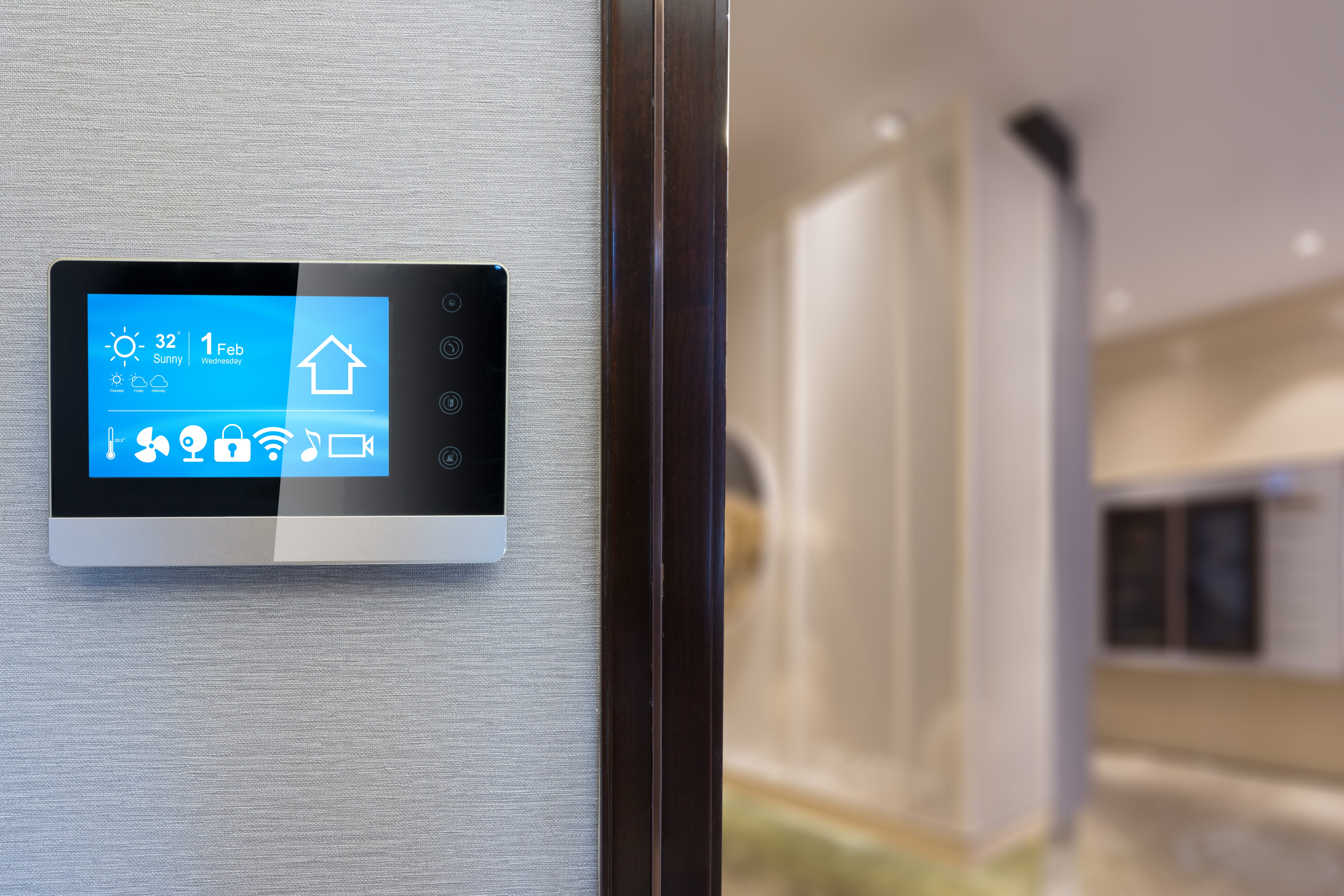Understanding the appeal and functionality of modern technology is pivotal in our quest for a more energy-efficient future. In particular, the smart thermostat is a device savvy homeowners are looking into. What are they? How do they work? Are there smart thermostat savings for my energy bill? And, ultimately, is a smart thermostat worth it? Let’s explore these questions and more.
What Is a Smart Thermostat?
At its core, a smart thermostat is an internet-connected device that automatically adjusts heating and cooling temperature settings for optimal performance. The underlying technology and programming capabilities differentiate it from a traditional thermostat. But how do smart thermostats work? These devices use algorithms and sensors to learn your preferences and schedule, enabling them to provide customized, energy-efficient temperature settings.
{{CTA-Thermostat}}
Benefits of Smart Thermostats
The benefits of a smart thermostat extend far beyond just controlling the temperature. Smart thermostats offer several advantages that make them a valuable addition to any home. They can make your home more energy efficient, learn your heating and cooling patterns and preferences and give you smart thermostat savings on your energy bills. They can also detect when you’re not home, ensuring you don’t waste energy or money by adjusting the temperature accordingly.
Another great benefit of smart thermostats is their convenience. You can control your device remotely through an app on your smartphone, meaning you can even control the temperature in your home when you’re gone. With features such as energy usage reports, maintenance reminders, and integration with other smart devices, it’s designed to make life more comfortable. Moreover, it contributes to eco-friendly living by reducing your carbon footprint.
Ways Smart Thermostats Can Save You Money
Arguably, the most significant benefit is the potential for smart thermostat savings. An energy-saving thermostat can learn your daily routine and adjust the temperature accordingly, reducing energy usage when you’re not at home or asleep. This capability directly leads to savings on your energy bills, answering the critical question: “Do smart thermostats save money?” The answer is yes, with potential savings between 10% to 23% on heating and cooling costs.
When Smart Thermostats Won’t Save You Money
While these devices promise energy savings, there are cases when they don’t save you money. If your home is often unoccupied or you already have a highly energy-efficient house, a smart thermostat may not significantly impact your energy bills.
Smart thermostats may not save you money if you have a well-regulated and efficient HVAC system already in place. If your current system is already operating at peak efficiency, the additional energy savings offered by a smart thermostat may be minimal.
Additionally, if you consistently keep your home at a stable temperature throughout the day and don’t frequently adjust the thermostat, the smart thermostat savings offered may not be significant enough to justify the cost of the device.
How Much Do Smart Thermostats Cost?
Smart thermostats can range from $100 to $300, depending on the brand and features. While this might seem steep, the potential ways to save energy on your bills can offset this initial cost over time.
Basic models with less functionality and fewer smart features are typically more affordable, while those with more advanced capabilities and integration with other smart home devices tend to be more expensive. The installation cost may or may not be included in the purchase price, depending on the retailer or service provider.
Overall, the cost of these devices can vary, but it is important to consider the potential energy savings when deciding whether or not a smart thermostat is worth it.
Is a Smart Thermostat Worth It?
Is a smart thermostat worth it? Homeowners frequently ask this question, and the answer relies heavily on your lifestyle and energy usage habits. If you spend a lot of time at home and want to save on energy costs, a smart thermostat is definitely a worthwhile investment. However, smart thermostats aren’t worth it for every home. This might be the case for homes in certain climates, those that are occupied most of the time, or if you already have a regular programmable thermostat set up with scheduled heating and cooling periods.
When determining whether a smart thermostat is worth it for your household, here are a few things to consider.
Pros of smart thermostats:
- They can save you money
- They are easy to use
- Set it and forget it technology
Cons of smart thermostats:
- Installation can be a hassle
- Benefits depend on occupancy
- They can be expensive upfront
Overall, for most homes, the pros of having a smart thermostat outweigh the cons, making them a worthwhile addition. Their price, learning curve, and installation are minor hurdles to take on versus the significant amount of convenience for optimizing your home’s climate and saving you money in the long run.
The Differences Between Programmable and Smart Thermostats
Both programmable and smart thermostats are designed to regulate and control the temperature in your home, but they have some key differences. The primary distinction lies in the level of automation and control. While programmable thermostats allow you to set schedules, they lack a smart thermostat’s learning capabilities and remote control features. And smart thermostats have built-in sensors to detect when you’re home and adjust the temperature accordingly.
Gexa Energy’s Smart Thermostat Plans
The smart thermostat represents a significant advancement in energy-saving technology. Though it may not be perfect for everyone, the potential savings and convenience make it a worthwhile investment for many homeowners.
The Gexa Energy Saver Plan delivers up to 23% in HVAC savings, a low fixed rate, two free smart thermostats, professional installation, 100% green energy, and our Happiness Guarantee. If you're not happy with your new Gexa Energy residential plan, just contact us within 60 days of your service activation date. You have the freedom to choose any eligible plan we offer, without incurring penalties. It's that easy.*
Indeed, when it comes to managing energy efficiently, a smart thermostat is smart in more ways than one. Make life simple and take control of your home’s energy efficiency today with Gexa Energy! For more home energy hacks, check out our article about 12 Spring Energy Saving Tips.
FAQs About Smart Thermostats
What are the disadvantages of a smart thermostat?
Smart thermostats depend on Wi-Fi, meaning you might lose some functionality if your internet is down. Additionally, the initial cost is higher than conventional thermostats.
Is it worth switching to a smart thermostat?
Yes, if you are looking for greater control over your home’s temperature settings and potential smart thermostat savings on your energy bills, it’s a worthwhile upgrade.
Do smart thermostats really save you money?
Yes, smart thermostats can save you money by optimizing your home’s energy use. However, the amount of money saved depends on your lifestyle and energy usage patterns.
Do I need a smart thermostat in each room?
It depends on your home’s heating and cooling system. In most cases, a single smart thermostat can efficiently control the temperature of your entire home.
Do smart thermostats work without Wi-Fi?
Yes, they can function without Wi-Fi, but you’ll lose the remote access capabilities.
*Happiness Guarantee - If you're not happy with your new Gexa Energy residential plan, just contact us within 60 days of your service activation date. You have the freedom to choose any eligible plan we offer, without incurring penalties. It's that easy. Applies one time only for new Gexa Energy residential customers. Your contract term will restart with your second plan. Offer subject to change or withdrawal prior to customer acceptance.






































